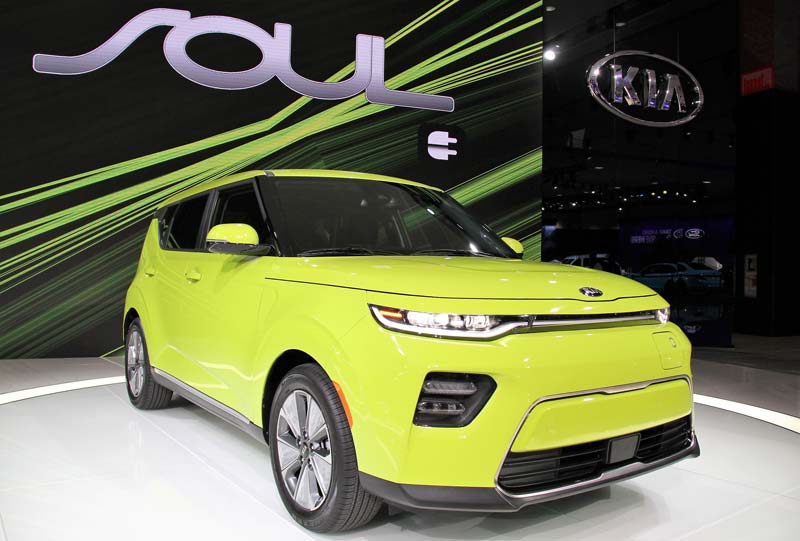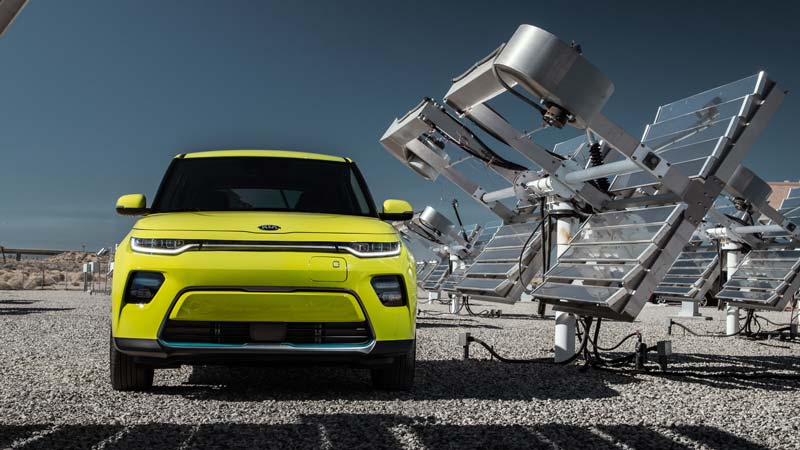The all-electric Kia Soul has beat fellow electric runners up Mini Cooper SE and the Volkswagen T-Cross to bag the title of World Urban Car of the Year at the 2020 World Car of the Year Awards.
First introduced in 2017, the urban category judges affordable runabouts under 4.2 metres aimed at practical city driving. The Kia Soul EV, one of two electric models from the South Korean auto maker, runs on a 64kWh liquid-cooled li-ion battery with 391km driving range based on the US EPA ratings.
With four drive modes (eco, comfort, sport and eco+), 150kW power and 394Nm torque, Kia says the 2020 Soul EV offers an “effortless pull” and improved handling and driving dynamics up from the previous model.
“It is a great honor for us to see the Soul EV named as World Urban Car,” said Thomas Schemera, executive VP and head of product division at Kia Motor of the award.
“This is one of the hardest-fought competitions in the global automotive industry, proving that the Soul EV is a truly outstanding vehicle for drivers in towns and cities. This accolade is testament to the talents and efforts of a worldwide team, who all strive to create desirable, high-quality and practical cars that drivers love.”
World Car Awards Program co-chair, Mike Rutherford praises the Soul EV – which in the UK starts from £36,645 (which converts to $A73,032 in Australia) excluding on-roads and the UK plug-in car grant for its value and accessibility.
“The World Urban Car award is increasingly significant as these clever, comparatively small cars measuring up to 4.2m long are among the biggest-selling, most accessible, best value vehicles in showrooms across the globe.”
“The fact is that large towns and cities with limited road space/off-street parking facilities continue to attract more residents, workers and other visitors. With this trend in mind, the popularity of urban cars is growing – and can only grow further. These are the logical, affordable, real-world automotive products for the motoring masses.”

Originally slated for the Australian market along with the Kia e-Niro crossover, the Soul EV is also now facing delays due to high demand overseas and the car maker’s need to shunt supplies to markets with vehicle emissions targets.
Its fellow electric competitor, the Mini Cooper SE is due to arrive in Australia in late 2020, with early estimates based on UK pricing suggesting it could come in around the same price of the Nissan Leaf and Hyundai Ioniq.

Bridie Schmidt is associate editor for The Driven, sister site of Renew Economy. She has been writing about electric vehicles since 2018, and has a keen interest in the role that zero-emissions transport has to play in sustainability. She has participated in podcasts such as Download This Show with Marc Fennell and Shirtloads of Science with Karl Kruszelnicki and is co-organiser of the Northern Rivers Electric Vehicle Forum. Bridie also owns a Tesla Model Y and has it available for hire on evee.com.au.

